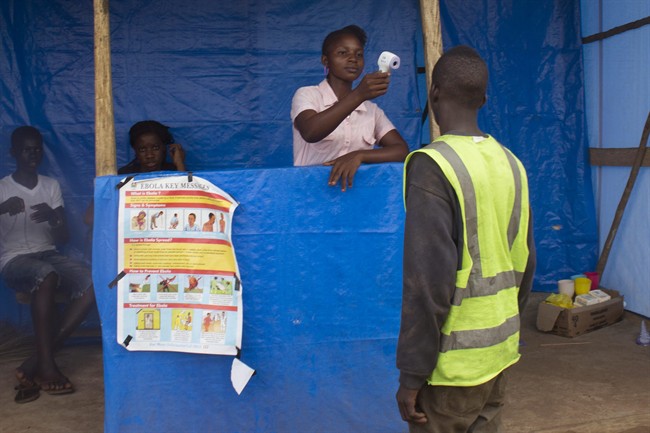CONAKRY, Guinea – The United States will help fight Ebola over “the long haul,” the American ambassador to the United Nations said on a trip to the West African countries hit by the outbreak.

Samantha Power will be in Sierra Leone on Monday. Power met Sunday with religious leaders in Guinea, where the Ebola outbreak was first identified in March.

Get weekly health news
“We are in this with you for the long haul,” she said. The outbreak has killed nearly 5,000 people, the vast majority of them in Guinea, Liberia and Sierra Leone.
“We have got to overcome the fear and the stigma that are associated with Ebola,” Power said. Fear that the disease is an automatic death sentence and the social stigma associated with it has led many people to hide in their homes rather than seek medical care, fueling the disease’s spread.
The United Nations mission to combat Ebola laid out a plan last week to isolate at least 70 per cent of cases – the level that experts say is necessary to slow the disease’s spread. The U.N. plan also includes safely burying at least 70 per cent of victims by Dec. 1, and to have 100 per cent of cases isolated and all the dead safely buried by Jan. 1.

Comments